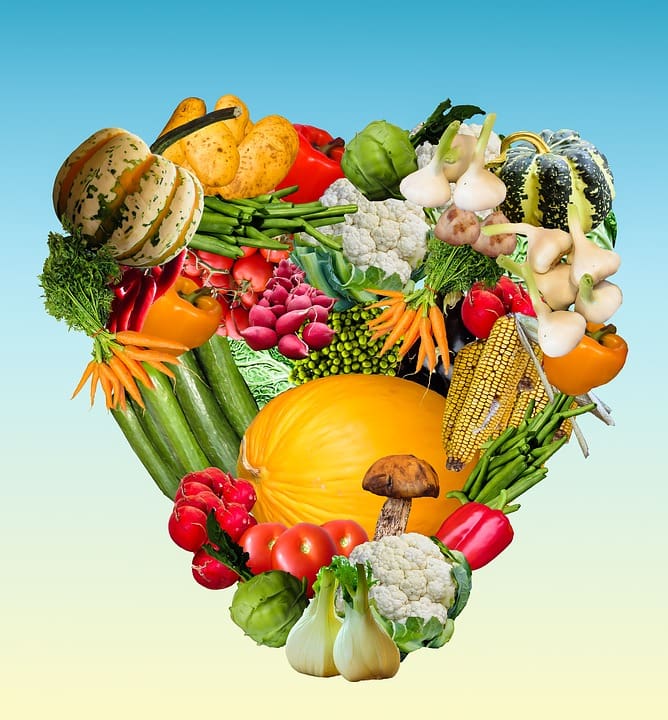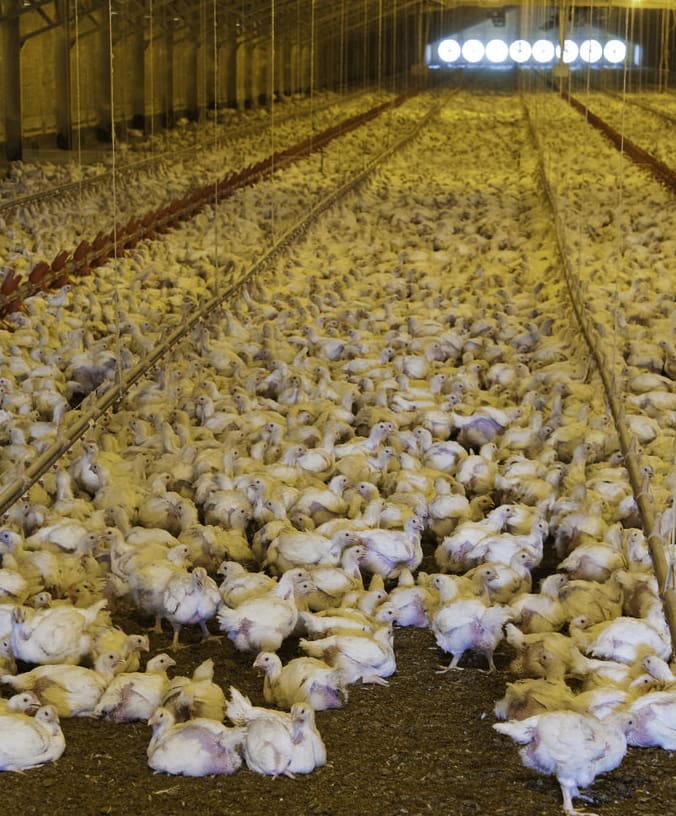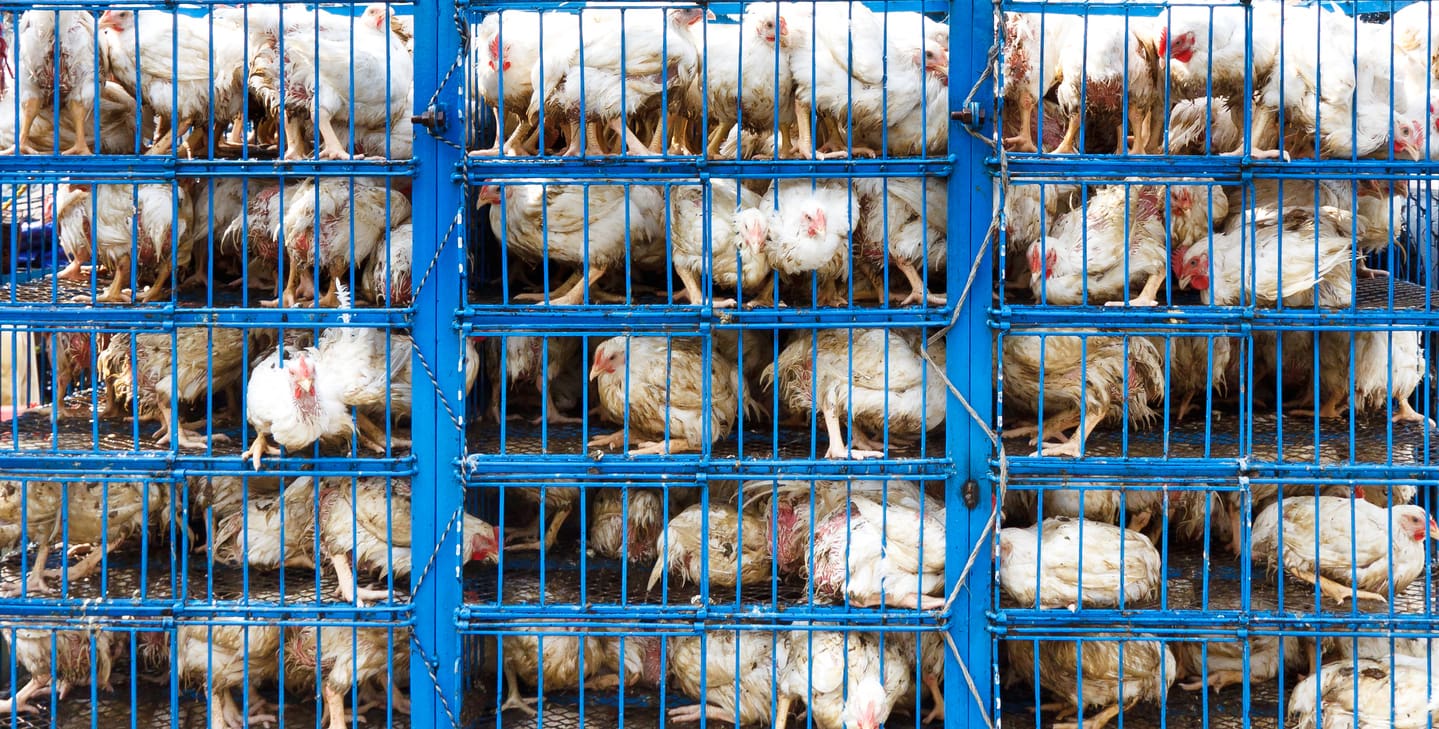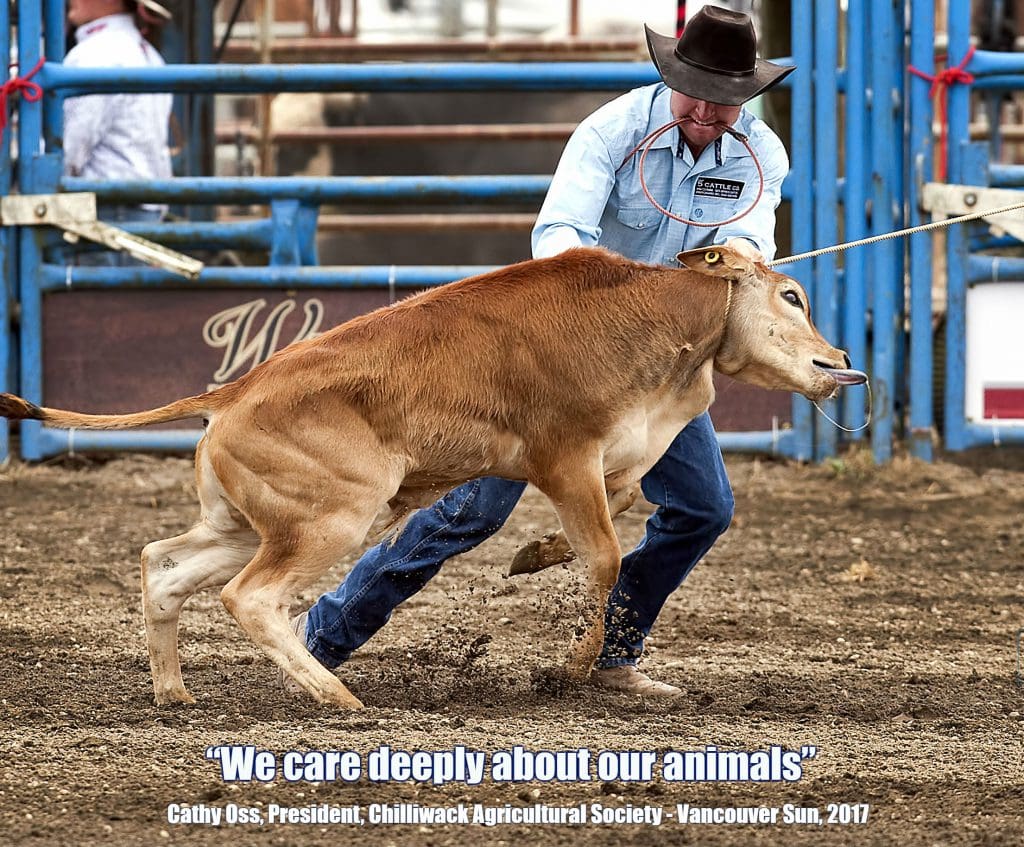Article originally published in the Vancouver Sun.
Most people care about how kittens and puppies are treated, but how many people have empathy for a 2,000-pound bucking bull?
The rodeo and bull-riding industries say bulls are mean and “ornery” and, of course, dangerous. They also call the bulls “athletes” — as though bulls have chosen a career in sports in the same way a football player might. They say bulls are just doing what they love to do.
The truth, however, is a different story. Bull-riding events depend on unnatural, coercive and inhumane treatment of bulls.
First, the bulls are bred to buck — a fact bull-riding promoters commonly use to defend the “sport.” But this only means that bulls are bred to have a genetic predisposition to buck. And it doesn’t mean the animal will enjoy bucking. It’s equivalent to breeding dogs for aggression or fear or to have a sensitivity to some form of negative stimulus.
In bull-riding there’s plenty of negative stimulus to make the animal buck. It has an unwanted rider on its back, who is wearing spurs that grip the bull’s hide. Just before the bull is released into the arena a “flank strap” is tightened around its hindquarters, which further induces bucking.
The flank strap is much debated, with rodeo supporters arguing that it’s just a “signal” to the bull to start bucking or that it just makes the bull buck harder. At most, they say, it’s a mild irritant. In fact, just like the unwanted rider and the spurs, the flank strap is causing the bull distress. Consequently, it enters the arena bucking wildly. It wouldn’t behave so otherwise.
The B.C. Prevention of Cruelty to Animals Act states that: “A person responsible for an animal must not cause or permit the animal to be, or to continue to be, in distress.” However, livestock are effectively exempted from the act, if “the distress results from an activity that is carried out in accordance with reasonable and generally accepted practices of animal management that apply to the activity in which the person is engaged … ”
The drafters of the act presumably had in mind agricultural practices such as branding cattle, which would be illegal if applied to dogs or cats. Until challenged in court, it seems rodeo events like bull-riding will qualify for the same exemption, despite having no agricultural purpose. Sadly, this means the bulls, calves and steers in rodeos don’t get the same legal protection from abuse as other animals.
Again, many will say: why care about bulls? They’re just livestock. Contrast this lack of public empathy with, say, captive whales or dolphins. For years, animal advocates and thousands of concerned citizens have rightly fought to end the keeping of cetaceans in marine parks and aquariums because it’s inhumane to hold them in tanks. The debate between pro and anti-captivity supporters has been fierce, with intense media attention about the issue.
But imagine if dolphin trainers applied deliberately stressful, physical methods — the equivalent of spurs and flank straps — to make the dolphins perform. There would be no debate. No civilized person would stand for it.
Some will argue: yes, but cetaceans are intelligent, beautiful and graceful, bulls not so much. But should we deny compassion and empathy to animals that are not as charismatic as others? As Jeremy Bentham reminded us, the only question that should matter is “can they suffer?”
On Sept. 15, Abbotsford’s Exhibition Park will host what has been billed as an “extreme-rodeo” event, featuring bull-riding, “extreme freestyle bullfighting” and “Mexican bull poker,” all of which involve stressing bulls to make them perform. Animal advocates are calling on Abbotsford city council, which owns the venue, to cancel the event.
The Chilliwack Fair rodeo (Aug. 10-12) also features bull-riding, along with controversial events such as calf-roping and steer-wrestling, which animal advocates are campaigning against.
All animals deserve our empathy and respect, even the strong and powerful. Isn’t it time we abolished events that depend on the taunting and tormenting of animals to entertain us? The cities of Abbotsford and Chilliwack could make a bold stand for compassion and kindness toward animals by doing just that.





